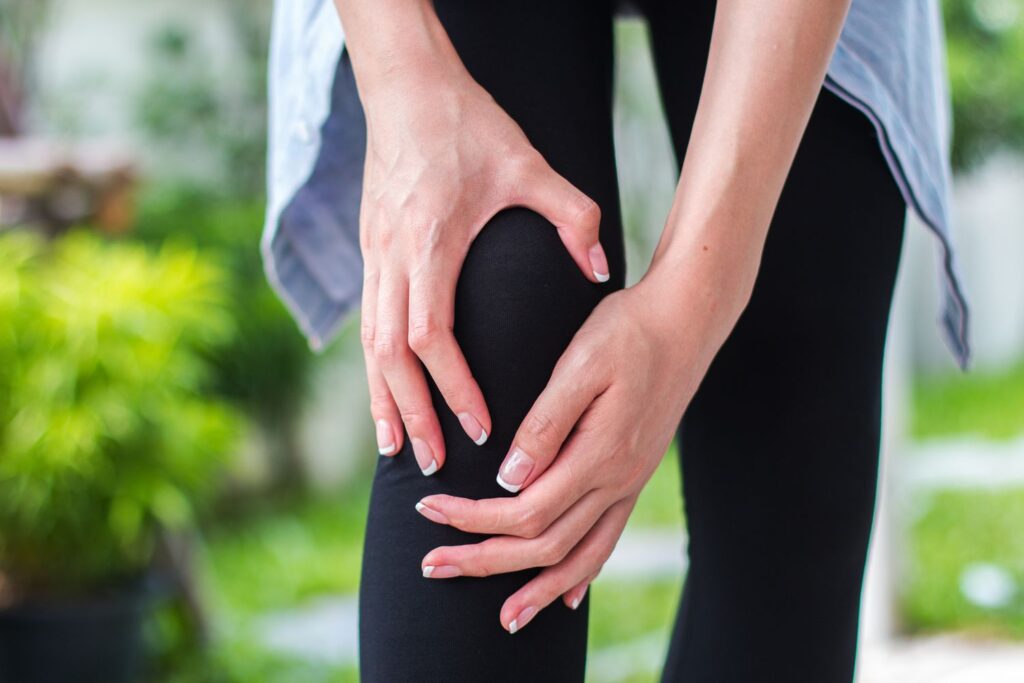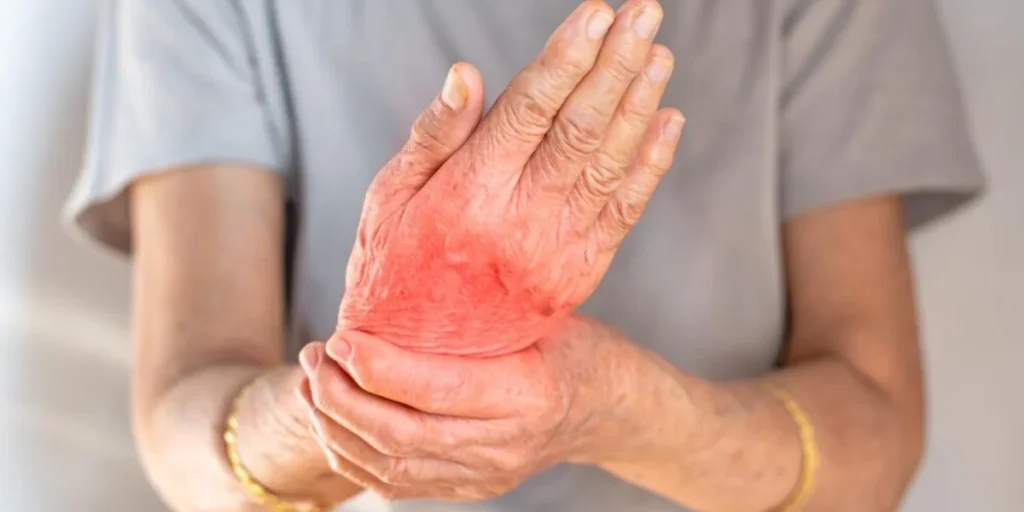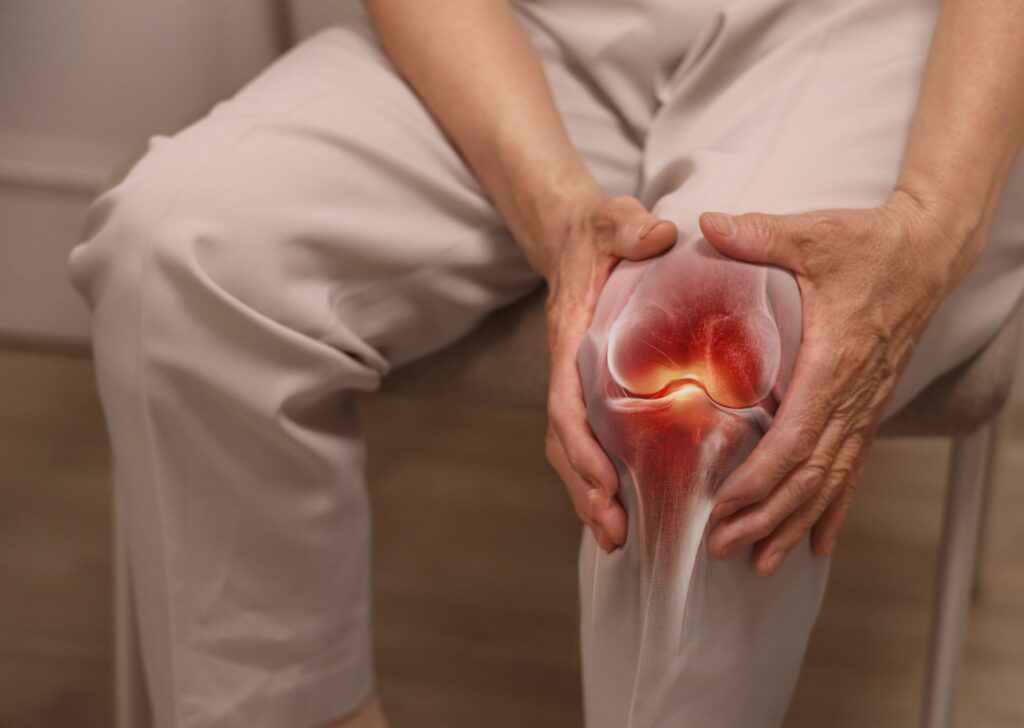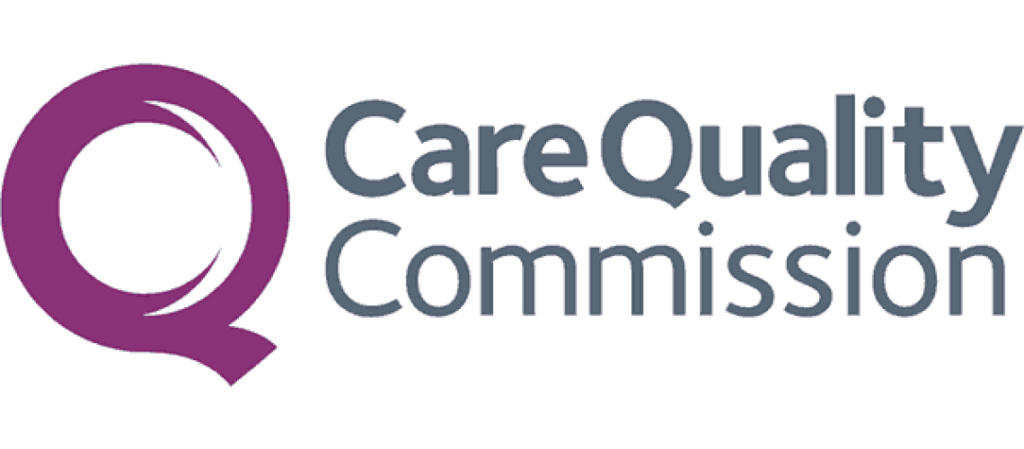Combined Injections
Combined Injections use multiple regenerative therapies—like PRP/ BMAC/ PRF, Hydrogel, Liquid Cartilage, and mFat, cells—in one treatment. This approach helps reduce inflammation, boost healing, and slow joint damage.
At a glance
About
Ideal for patients who have not responded to traditional treatments
Effective
Referrals
Not Needed
Booking
Instant-book option available
Cost
-
Lincolnshire £ 200 extra
Nature of combined injections
Combined injections involve a dual-approach method. After an initial assessment, the targeted area is injected with two complementary substances, one focused on reducing inflammation and pain, and the other aimed at triggering the body’s natural healing response. The treatment is quick, performed in an outpatient setting, and designed to offer relief while enhancing tissue regeneration. Depending on the severity of the condition, repeat sessions may be recommended.
Common conditions suitable for combined injections
Joint and soft tissue issues treated by combined injections are often due to:
Overuse injuries: Repetitive strain from sports or physical work can cause chronic joint or tendon pain.
Degenerative changes: Age-related wear can lead to weakened tissue and joint deterioration.
Inflammation: Long-standing joint inflammation contributes to pain and limited mobility.
Post-surgical healing: Combined injections can enhance recovery after joint or tendon surgery.
Trauma: Past injuries may leave lasting damage that requires targeted regeneration.
Diagnosing suitability for combined injections
Diagnosis begins with a clinical assessment to evaluate symptoms such as pain, stiffness, and limited range of motion. Your clinician will review your history of joint or soft tissue issues and perform a physical examination. Imaging tools like MRI or ultrasound may be used to identify tissue damage or inflammation. If conservative treatments have failed and there’s a need for both anti-inflammatory and regenerative support, combined treatment may be advised as an appropriate next step.
Suitable for
Early osteoarthritis

Tendon injuries

Treatment overview
Combine injections involve a dual-approach method. After an initial assessment, the targeted area is injected with two complementary substances—one focused on reducing inflammation and pain, and the other aimed at triggering the body’s natural healing response. The treatment is quick, performed in an outpatient setting, and designed to offer relief while enhancing tissue regeneration. Depending on the severity of the condition, repeat sessions may be recommended.
Combine treatment is a regenerative injection therapy that blends two powerful techniques—one aimed at reducing inflammation and the other focused on stimulating repair. It is most commonly used to treat joint pain, soft tissue injuries, and early degenerative conditions. This approach is ideal for patients who have not responded to traditional treatments and are looking for a minimally invasive solution to improve joint function and reduce discomfort.

Benefits

Reduces inflammation and pain

Promotes tissue repair

Enhances joint mobility and function

Non-surgical, outpatient procedure
How to Pay
We offer a range of flexible payment options to make your treatment experience smooth and stress-free.
Paying for Yourself (Preferred Option)
Most patients choose to self-fund their treatment. We accept:
- Bank Transfers
- Credit/Debit Cards
- Cash (in person only)
Instalment Plans
We’ve partnered with GoCardless to offer interest-free instalment options. You can easily set up a Direct Debit to spread the cost of your treatment over time.
Finance Options
Looking for a financing plan? You can apply through Kandoo, our trusted finance partner.
- Instant online decision
- No impact on your credit score
- Multiple lenders for competitive rates
Private Medical Insurance (Limited Availability)
We work with a small number of approved insurance providers. However, due to restrictions from many insurers, not all treatments are covered. Please check with your insurer and speak to our team before booking to avoid disappointment.
The booking process
Online booking/call
Use our Calendly to book an initial consultation, or give us a call.
01
consultation
If you are a new patient, our doctors might arrange a consultation before treatment.
02
Treatment
You will be booked in for treatment.
03
Follow up
Our doctors might arrange a follow-up consultation, to check your response to treatment.
04
Discharge
Once your doctor is happy with your recovery, you will be discharged. After discharge, we are always here for further questions or support, should you need it.
05
Frequently Asked Questions
How is Combine treatment different from single-method injections?
Combine treatment targets both inflammation and regeneration at the same time, offering broader relief and healing compared to single-agent therapies.
Is the procedure painful?
Most patients experience only mild discomfort during the injection. A local anaesthetic is used to minimise pain.
How long does it take to see results?
Some patients feel improvement within days, while others may notice benefits over a few weeks as tissue healing progresses.
Injection Treatment Comparison
Explore the key differences between leading injection therapies used in joint, tendon, and cartilage care. Compare their effectiveness, uses, recovery time, and potential drawbacks to help guide your treatment decisions.
Injection Type | Best For | Effectiveness (⭐ out of 5) | What It Does | Recovery Time | Downside |
|---|
Hyaluronic Acid (HA) Injection
Injection Type | Best For | Effectiveness (⭐ out of 5) | What It Does | Recovery Time | Downside |
|---|---|---|---|---|---|
Hyaluronic Acid (HA) Injection | Mild to moderate knee osteoarthritis, joint lubrication | ⭐⭐⭐ | Lubricates joints, reduces friction, and relieves pain in osteoarthritis. | Immediate return to daily activities, effects last 3-12 months.
| Short-term relief, effects wear off over time; does not regenerate cartilage.
|
Cartilage Matrix Injection
Injection Type | Best For | Effectiveness (⭐ out of 5) | What It Does | Recovery Time | Downside |
|---|---|---|---|---|---|
Cartilage Matrix Injection | Moderate to severe cartilage damage, osteoarthritis, surgical augmentation | ⭐⭐⭐⭐⭐ | Provides a structural scaffold to support cartilage repair and regeneration. | Minimal downtime, improvement in 4-6 weeks, lasting 6-12 months. | May lead to mild inflammation or combination with other therapies for best results |
Arthrosamid Injection (Hydrogel)
Injection Type | Best For | Effectiveness (⭐ out of 5) | What It Does | Recovery Time | Downside |
|---|---|---|---|---|---|
PRP (Platelet-Rich Plasma) Injection | Tendon injuries, mild arthritis, post-surgical healing. | ⭐⭐⭐ | Uses growthregfactors from the patient’s own blood to stimulate healing and reduce inflammation. Work well on ligaments and tendons. | Minimal downtime, improvement seen in 4-6 weeks, lasting 6-12 months. | Not very effective for established Arthritis. Unless combined with other treatments. |
PRP (Platelet-Rich Plasma) Injection
Injection Type | Best For | Effectiveness (⭐ out of 5) | What It Does | Recovery Time | Downside |
|---|---|---|---|---|---|
PRP (Platelet-Rich Plasma) Injection | Tendon injuries, mild arthritis, post-surgical healing. | ⭐⭐⭐ | Uses growthregfactors from the patient’s own blood to stimulate healing and reduce inflammation. Work well on ligaments and tendons. | Minimal downtime, improvement seen in 4-6 weeks, lasting 6-12 months. | Not very effective for established Arthritis. Unless combined with other treatments. |
mFAT (Microfragmented Adipose Tissue) Injection
Injection Type | Best For | Effectiveness (⭐ out of 5) | What It Does | Recovery Time | Downside |
|---|---|---|---|---|---|
mFAT (Microfragmented Adipose Tissue) Injection | Moderate to severe arthritis, joint degeneration, soft tissue repair | ⭐⭐⭐⭐ | Fat-derived stem cells injected into joints to reduce inflammation and promote tissue repair. | Light activity immediately, pain relief in 2-4 weeks, lasting 6-24 months | Requires minor liposuction to harvest fat; may not be as effective in severe arthritis |
BMAC (Bone Marrow Aspirate Concentrate) Injection
Injection Type | Best For | Effectiveness (⭐ out of 5) | What It Does | Recovery Time | Downside |
|---|---|---|---|---|---|
BMAC (Bone Marrow Aspirate Concentrate) Injection | Fracture healing. Previously used for cartilage regeneration; less preferred due to inconsistent results | ⭐⭐ | Bone marrow cells injected for potential cartilage repair, but effectiveness varies. | Minimal restrictions, noticeable effects in 3 months, full benefits in 6-12 months. | Inconsistent results, Very invasive; less preferred compared to other regenerative options. |
Cortisone (Steroid) Injection
Injection Type | Best For | Effectiveness (⭐ out of 5) | What It Does | Recovery Time | Downside |
|---|---|---|---|---|---|
Cortisone (Steroid) Injection | Severe inflammation, advanced arthritis pain management (short-term use only) | ⭐
(Anti-Inflammatory) | Powerful anti-inflammatory, provides temporary pain relief but accelerates joint degeneration. | Immediate pain relief, but potential long-term cartilage damage. Best when mixed with PRP & HA to reduce toxicity. | Toxic to cartilage; long-term use can accelerate joint degeneration. |
Exosome Injection
Injection Type | Best For | Effectiveness (⭐ out of 5) | What It Does | Recovery Time | Downside |
|---|---|---|---|---|---|
Exosome Injection | Early-stage arthritis, tendon injuries, inflammation modulation, post-surgical recovery. | ⭐⭐⭐ | Delivers signaling molecules that promote regeneration, reduce inflammation, and support healing at a cellular level. | Minimal downtime, improvement seen in 3-6 weeks, lasting 6-12 months. | Still experimental; effectiveness varies depending on the condition treated. |
Injection Type | Best For | Effectiveness (⭐ out of 5) | What It Does | Recovery Time | Downside |
|---|---|---|---|---|---|
Hyaluronic Acid (HA) Injection | Mild to moderate knee osteoarthritis, joint lubrication | ⭐⭐⭐ | Lubricates joints, reduces friction, and relieves pain in osteoarthritis. | Immediate return to daily activities, effects last 3-12 months.
| Short-term relief, effects wear off over time; does not regenerate cartilage.
|
Cartilage Matrix Injection | Moderate to severe cartilage damage, osteoarthritis, surgical augmentation | ⭐⭐⭐⭐⭐ | Provides a structural scaffold to support cartilage repair and regeneration. | Minimal downtime, improvement in 4-6 weeks, lasting 6-12 months. | May lead to mild inflammation or combination with other therapies for best results |
Arthrosamid Injection (Hydrogel) | Moderate to severe knee osteoarthritis, locking in regeneration effects, shielding the synovium | ⭐⭐⭐⭐
(Anti-degeneration) | Does not regenerate cartilage but indirectly reduces inflammation and protects the joint. | Immediate return to activities, full effect in 2-4 weeks, lasts 12-24 months | Does not regenerate cartilage, only helps maintain improvements and Side effect profile. |
PRP (Platelet-Rich Plasma) Injection | Tendon injuries, mild arthritis, post-surgical healing. | ⭐⭐⭐ | Uses growthregfactors from the patient’s own blood to stimulate healing and reduce inflammation. Work well on ligaments and tendons. | Minimal downtime, improvement seen in 4-6 weeks, lasting 6-12 months. | Not very effective for established Arthritis. Unless combined with other treatments. |
mFAT (Microfragmented Adipose Tissue) Injection | Moderate to severe arthritis, joint degeneration, soft tissue repair | ⭐⭐⭐⭐ | Fat-derived stem cells injected into joints to reduce inflammation and promote tissue repair. | Light activity immediately, pain relief in 2-4 weeks, lasting 6-24 months | Requires minor liposuction to harvest fat; may not be as effective in severe arthritis |
BMAC (Bone Marrow Aspirate Concentrate) Injection | Fracture healing. Previously used for cartilage regeneration; less preferred due to inconsistent results | ⭐⭐ | Bone marrow cells injected for potential cartilage repair, but effectiveness varies. | Minimal restrictions, noticeable effects in 3 months, full benefits in 6-12 months. | Inconsistent results, Very invasive; less preferred compared to other regenerative options. |
Cortisone (Steroid) Injection | Severe inflammation, advanced arthritis pain management (short-term use only) | ⭐
(Anti-Inflammatory) | Powerful anti-inflammatory, provides temporary pain relief but accelerates joint degeneration. | Immediate pain relief, but potential long-term cartilage damage. Best when mixed with PRP & HA to reduce toxicity. | Toxic to cartilage; long-term use can accelerate joint degeneration. |
Exosome Injection | Early-stage arthritis, tendon injuries, inflammation modulation, post-surgical recovery. | ⭐⭐⭐ | Delivers signaling molecules that promote regeneration, reduce inflammation, and support healing at a cellular level. | Minimal downtime, improvement seen in 3-6 weeks, lasting 6-12 months. | Still experimental; effectiveness varies depending on the condition treated. |
Hyaluronic Acid (HA) Injection
Best For
Mild to moderate knee osteoarthritis, joint lubrication
What It Does
Lubricates joints, reduces friction, and relieves pain in osteoarthritis.
Recovery Time
Immediate return to daily activities, effects last 3-12 months.
Downside
Short-term relief, effects wear off over time; does not regenerate cartilage.
Cartilage Matrix Injection
Best For
Moderate to severe cartilage damage, osteoarthritis, surgical augmentation
What It Does
Provides a structural scaffold to support cartilage repair and regeneration.
Recovery Time
Minimal downtime, improvement in 4-6 weeks, lasting 6-12 months.
Downside
May lead to mild inflammation or combination with other therapies for best results
Arthrosamid Injection (Hydrogel)
Best For
Tendon injuries, mild arthritis, post-surgical healing.
What It Does
Uses growthregfactors from the patient’s own blood to stimulate healing and reduce inflammation. Work well on ligaments and tendons.
Recovery Time
Minimal downtime, improvement seen in 4-6 weeks, lasting 6-12 months.
Downside
Not very effective for established Arthritis. Unless combined with other treatments.
PRP (Platelet-Rich Plasma) Injection
Best For
Tendon injuries, mild arthritis, post-surgical healing.
What It Does
Uses growthregfactors from the patient’s own blood to stimulate healing and reduce inflammation. Work well on ligaments and tendons.
Recovery Time
Minimal downtime, improvement seen in 4-6 weeks, lasting 6-12 months.
Downside
Not very effective for established Arthritis. Unless combined with other treatments.
mFAT (Microfragmented Adipose Tissue) Injection
Best For
Moderate to severe arthritis, joint degeneration, soft tissue repair
What It Does
Fat-derived stem cells injected into joints to reduce inflammation and promote tissue repair.
Recovery Time
Light activity immediately, pain relief in 2-4 weeks, lasting 6-24 months
Downside
Requires minor liposuction to harvest fat; may not be as effective in severe arthritis
BMAC (Bone Marrow Aspirate Concentrate) Injection
Best For
Fracture healing. Previously used for cartilage regeneration; less preferred due to inconsistent results
What It Does
Bone marrow cells injected for potential cartilage repair, but effectiveness varies.
Recovery Time
Minimal restrictions, noticeable effects in 3 months, full benefits in 6-12 months.
Downside
Inconsistent results, Very invasive; less preferred compared to other regenerative options.
Cortisone (Steroid) Injection
Best For
Severe inflammation, advanced arthritis pain management (short-term use only)
What It Does
Powerful anti-inflammatory, provides temporary pain relief but accelerates joint degeneration.
Recovery Time
Immediate pain relief, but potential long-term cartilage damage. Best when mixed with PRP & HA to reduce toxicity.
Downside
Toxic to cartilage; long-term use can accelerate joint degeneration.
Exosome Injection
Best For
Early-stage arthritis, tendon injuries, inflammation modulation, post-surgical recovery.
What It Does
Delivers signaling molecules that promote regeneration, reduce inflammation, and support healing at a cellular level.
Recovery Time
Minimal downtime, improvement seen in 3-6 weeks, lasting 6-12 months.
Downside
Still experimental; effectiveness varies depending on the condition treated.
Schedule A Discovery Call With Us
Don’t wait to find relief. Whether it’s a consultation, scan, or treatment, we’re ready to help.






